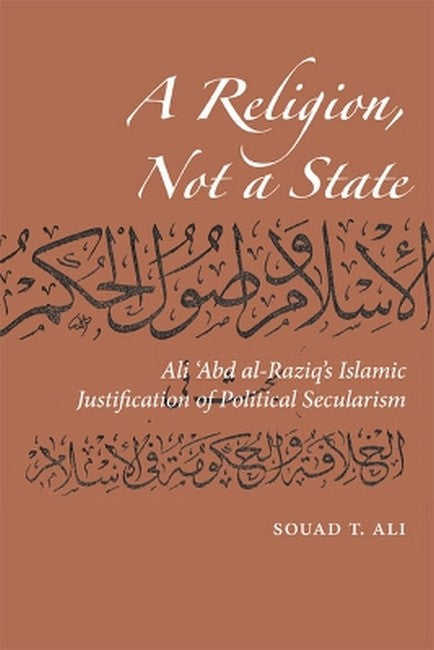Souad T. Ali is an assistant professor of Arabic and Middle East and Islamic Studies and head of Classics and Middle East Letters and Cultures at the School of International Letters and Cultures at Arizona State University. She has recently been named a Fulbright Scholar.
Request Academic Copy
Please copy the ISBN for submitting review copy form
Description
Table of Contents:Foreword Acknowledgments Note on Transliteration 1. Introduction: Background and Overview 2. Classical Juristic Theories of the Caliphate: From Idealism to Accommodationism 3. The Caliphate in the Colonial Era 4. Ali 'Abd al-Raziq's Position 5. The Central Argument 6. The Ruling System in the Time of the Prophet 7. Critiques of 'Abd al-Raziqu's Position 8. The Implications of 'Abd al-Raziq's Study for the Debate over Islam and Politics Glossary Selected Bibliography Index
"Ali succeeds in situating the [Islamic secularism] debate in its historical contexts and in lucidly presenting the positions of major players with balance and objectivity. Her writing style is clear and this helps make the material accessible even for someone who approaches it for the first time."-Mohamed A. Mahmoud, Tufts University "With its rich historical background and extensive literature review...this book would be an excellent source for students of Islamic political thought...While [Abd al-] Raziq's ideas were discussed in other important books on Islamic political theory... this book fulfills the need for a more detailed, independent volume."-Hasan Kosebalaban. Michigan State University "The author has succeeded in offering a sustained and methodical exposition of the 1925 treatise and 'Ali 'Abd al-Raziq's justification of political secularism."-Journal of Islamic Studies "Carefully written. A valuable contribution to study of the history of the caliphate, political Islam, the influence of colonialism, modern Egyptian political history, and secularization in Islam. It contributes to understanding the caliphate and current radical Islamist doctrines."-Choice "Offers a lively analysis of one of the boldest Muslim thinkers of the early twentieth century. Her book will appeal to readers who are interested in the intellectual antecedents of contemporary liberal Muslim thought."-Journal of Religion in Africa

